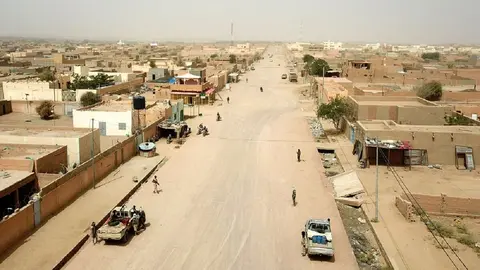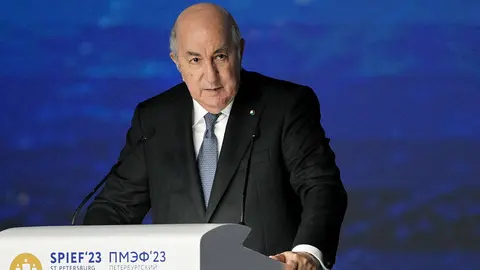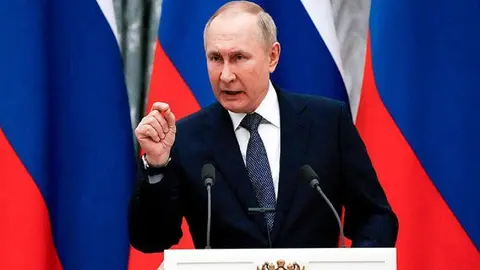Private military companies as another means of destabilisation in Africa
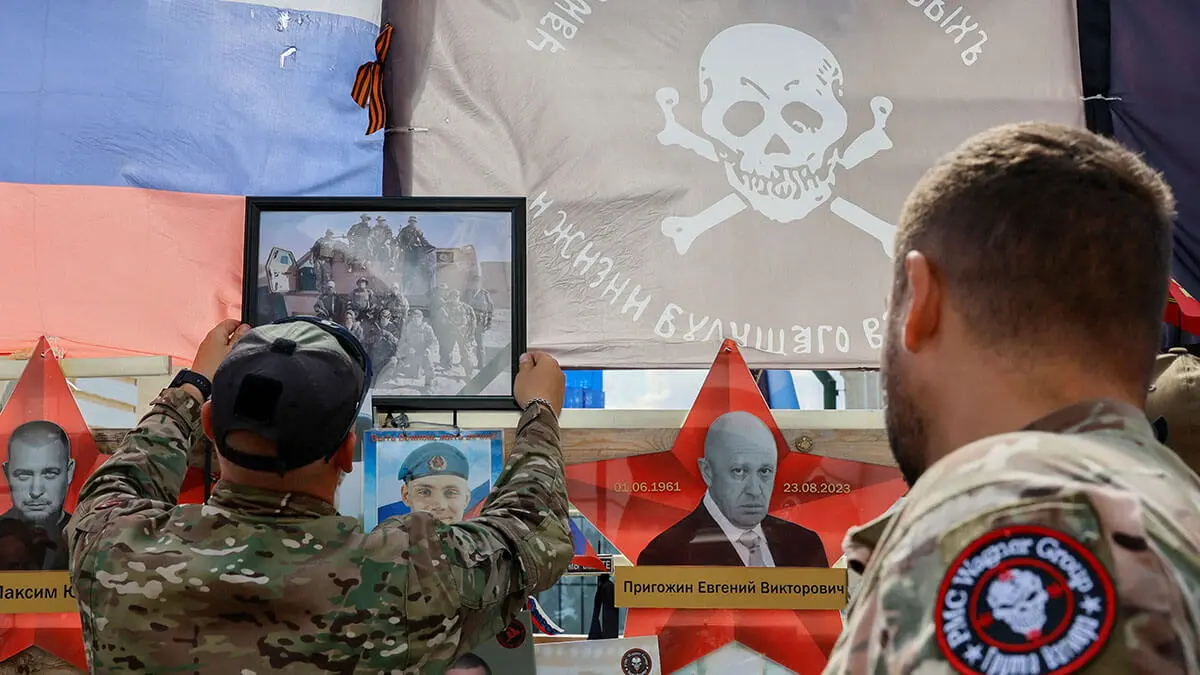
The Wagner Group, a notorious Russian private military company and network of mercenaries operating nationally and internationally, has certified that it provides military services in exchange for securing extensive access to the vast natural resources available on the African continent.
One of the main reasons for resorting to these actors is the speed and direction with which they are introduced into areas, despite the fact that this then has prolonged adverse effects on the situation of countries and repercussions on civilians, who sometimes end up being targets of violence.
These types of entities are deployed as a tool to strengthen national security, but their legality as institutions and the conduct of their operations are questioned. This is because they serve as actors that promote violence and exacerbate disputes, ultimately failing to mitigate them, let alone resolve them. In addition, they are also groups that are under investigation and accused of serious interference and war crimes in disputes.
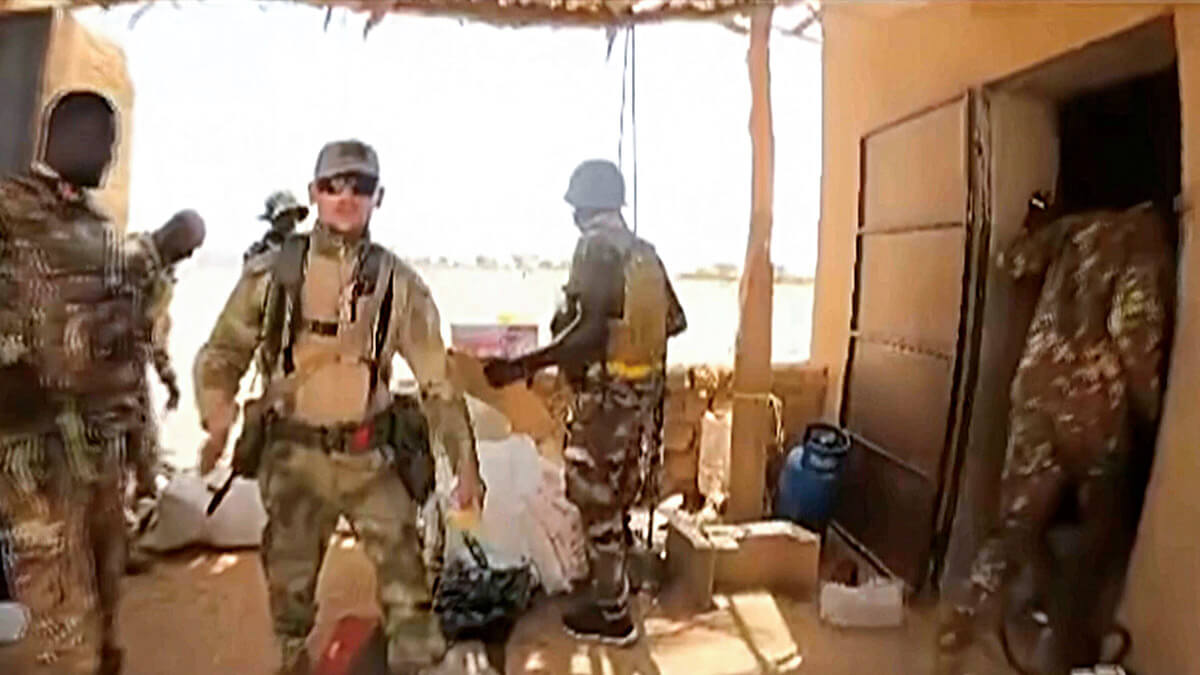
Thus, the African landscape is plunging into a further deepening and worsening of the conflict that has been ravaging the region for decades. The Wagner Group, one of the most active in the world, has been operating in Africa for years, supporting Russia's strategy to strengthen its geopolitical power and projection, increase its proximity to like-minded governments and forge new strategic alliances, causing Russian military influence to grow.
Among the African countries with the strongest Russian presence are Mali, Libya, the Central African Republic, Mozambique, Burkina Faso, Niger, Equatorial Guinea, Chad, Sudan and Guinea-Bissau.
A concrete example of Russia's destabilisation tactics is its military services in the Central African Republic against armed militias while exploiting state resources. However, beyond what is visible, this is a transaction that transcends the exchange of military activity for resources and involves manoeuvres that allow interference in the internal affairs of countries and the development of propaganda campaigns that lead to internal imbalance and divisions. It is also important to note that by intervening, they also incite the escalation of violence, either intentionally or as a knock-back effect.
These types of activities can be attributed to the Wagner Group, but also to other similar companies in the field, such as Executive Outcomes and Dyke Consulting, which have acted in Mozambique against the expansion of Islamist insurgency in the north of the country.
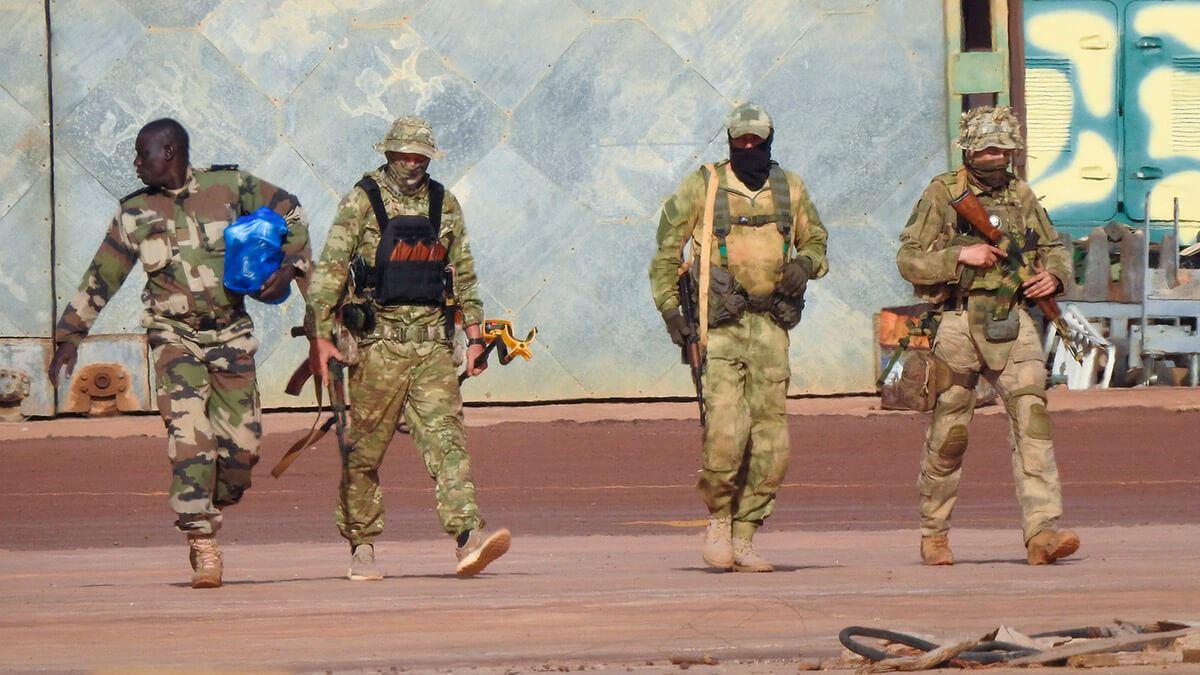
It is also important to mention that these groups are successful in fighting militias or rebel armed forces and in their training and capacity-building efforts, but their behaviour on the battlefield is far from following the principles established by international law, especially those that should apply in the context of war and for the protection of civilian life and the maintenance of the limits of proportionality.
In short, the interventions of private organisations do not represent an effort to ensure security or mediate in the search for peace, because they act in accordance with specific interests and are not impartial, especially when economic and commercial interests have such a significant impact on the equation.
Consequently, although the strategies have the potential to be effective, the costs have been very high and the resulting chaos and vulnerability are a problem that must be solved through weakened institutions. Furthermore, international mechanisms have not yet strictly regulated this activity, which gives them unlimited operational freedom and creates legal loopholes in terms of accountability for human rights violations.
All of this is linked to the fragility of African governments and the relationships of dependency that arise with private military companies and the effects this has on national sovereignty and the maintenance of the political and economic crisis in Africa.

